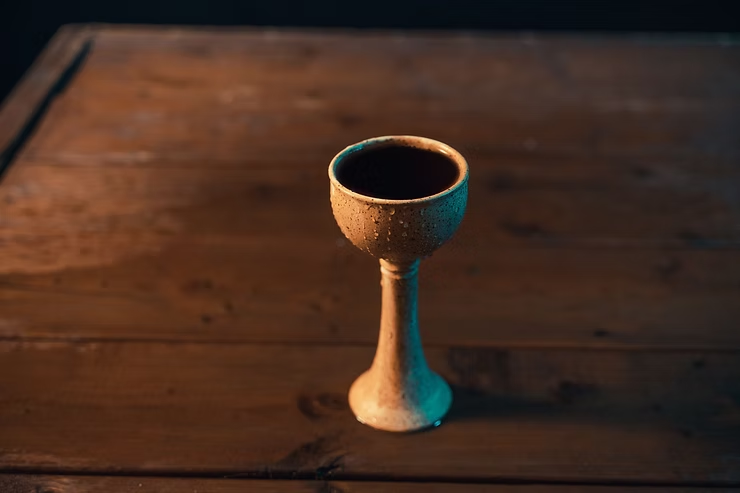The Cup of Salvation: Understanding Psalm 116’s Celebration of Grace
This profound psalm of thanksgiving explores the believer’s response to God’s deliverance through the powerful metaphor of the “cup of salvation” (Psalm 116:13), contrasting God’s mercy with the cup of wrath deserved by sinners.
The Psalmist’s Response to Divine Rescue
- Recognition of helplessness: God saves when we cannot save ourselves
- Overflowing gratitude: “What shall I render to the Lord?” (v.12)
- Public testimony: Vows fulfilled before God’s people (v.14)
The Cup of Salvation in Biblical Context
- Old Testament background:
- Drink offerings as thanksgiving (Leviticus 23:13)
- Memorial of God’s provision (Genesis 35:14)
- Part of priestly consecration (Exodus 29:38-41)
- New Testament fulfillment:
- Paul’s life as drink offering (Philippians 2:17; 2 Timothy 4:6)
- Christ’s cup of suffering (Matthew 26:39)
Theological Contrast: Two Cups
| Cup of Salvation | Cup of Wrath |
|---|---|
| God’s abundant blessings (Psalm 23:5) | Divine judgment on sin (Jeremiah 25:15) |
| Received by believers | Deserved by all humanity |
| Celebrates redemption | Punishes rebellion |
| Foreshadows communion cup | Christ drank on our behalf (Matthew 27:46) |
Christ’s Ultimate Sacrifice
- Drank the cup of wrath in our place
- Established the new covenant in His blood (Luke 22:20)
- Transformed the cup from judgment to joy
Practical Applications
- Respond to God’s grace with thankful worship
- Publicly testify to God’s deliverance
- Remember Christ’s substitutionary sacrifice
- Approach communion with profound gratitude
“The cup that should have meant our judgment became our salvation when Christ drank it to the dregs for us.”

